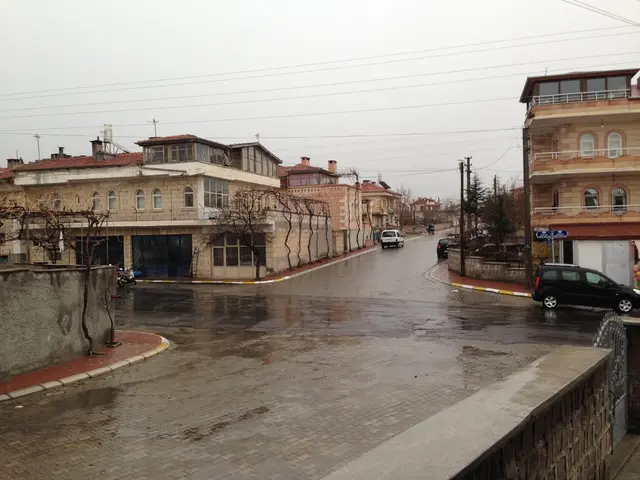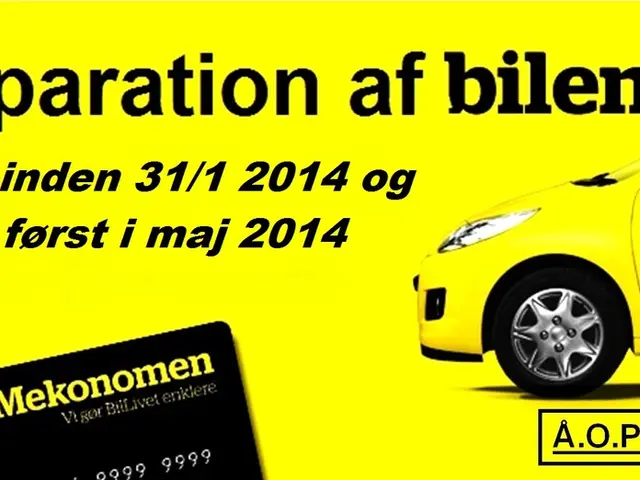Navigating Rail Travel Turbulence: Stuttgart's Redesign Causes ICE Route Hiccups
Construction Setbacks on High-Speed Rail Project in Stuttgart (ICE Tracks) - Disruptions in InterCity Express (ICE) Routes due to Stuttgart 21 Project Delays
Brace yourselves, intercity train travelers of Germany! The much-anticipated Stuttgart 21 modernization project—a massive undertaking involving the overhaul of Stuttgart Hauptbahnhof and associated rail lines—is causing a bit of stress for long-distance voyagers. Due to the critical interconnection between ICE (InterCity Express) Wendlingen-Ulm in Baden-Württemberg and the future Stuttgart main station infrastructure, train operations are experiencing a considerable slowdown, according to Deutsche Bahn, until May 16.
Here's a rundown of what you can expect:
Long-distance train services across the nation are undergoing an adjustment period. Annoying delays and cancellations have become inevitable. Don't miss your ride; be prepared for unavoidable setbacks.
You may be wondering why the fuss and what this means for you. Let's dive deeper into the issue:
- Changes in Stuttgart, Benefits Down the Track?
- Days of travel to cities such as Tübingen, Heilbronn, Mannheim, Aalen, and Karlsruhe might extend, given the Stuttgart 21 renovations' impact on rail connections.
- Once the Stuttgart 21 project is finished, rail services connecting Stuttgart and Tübingen will be enhanced, with four trains per hour each way by December 2025[5].
Meanwhile, ongoing construction on the Mannheim-Stuttgart route has already ushered in changes on the high-speed line:
- Mannheim-Stuttgart Route Upheaval
- Delayed journeys between Mannheim and Stuttgart by a whopping 40 minutes are the new norm, as the route undergoes necessary repairs.
- On the Mannheim-Stuttgart-Munich ICE (InterCity Express) connection, trains now run every two hours. On the ICE 42 (Hamburg-Cologne-Frankfurt-Mannheim-Stuttgart-Munich), trains are operational only between Hamburg and Stuttgart. The omitted stops include Ulm, Günzburg, Augsburg, Munich-Pasing, and Munich Hbf. Trains on this section also take an extra 40 minutes due to construction work.
- ICE 11 (Berlin-Leipzig-Frankfurt-Stuttgart-Munich) trains are also slower, with about 40 minutes added to the journey given the construction work. They also make an additional stop in Günzburg. ICE 47 (Dortmund-Cologne-Frankfurt-Stuttgart-Munich) trains have been temporarily canceled.
Other restrictions to be mindful of include:
- Additional Snags
- The ICE 224/225 (Amsterdam-Munich) is only running between Amsterdam and Stuttgart. On the Karlsruhe-Stuttgart-Munich ICE connection, ICE trains are still running every two hours.
- Trains on the ICE 60 (Karlsruhe-Stuttgart-Ulm-Munich) are being rerouted between Ulm and Stuttgart, which increases travel time by about ten minutes. Unlike before, trains take an extra twenty minutes between Karlsruhe and Stuttgart due to construction work.
If you're seeking more precise information regarding ongoing delays or cancellations or simply looking for an update, be sure to visit the Deutsche Bahn website or reach out to their customer service for the latest details. Happy traveling!
- The Commission has also adopted a proposal for a directive on the approximation of the laws of the Member States relating to the labelling of foodstuffs, focusing on the industries that supply public-transit systems and transportation, such as the automotive industry and finance, to ensure clear and consistent food labelling on trains, including those traversing routes affected by the Stuttgart 21 project.
- For instance, delays on the ICE (InterCity Express) Wendlingen-Ulm in Baden-Württemberg, impacted by Stuttgart's redesign, might prompt some food industries to reconsider their transportation methods, such as using alternative routes like the Munich-Stuttgart tunnel instead of land transportation across Germany.
- In the midst of these changes, delays on certain ICE routes have caused the transport sector to question the financial implications, as train services have experienced a considerable slowdown until May 16. This slip in productivity could potentially have significant repercussions for both the railway sector and the food industries that supply it.
- Additionally, the public-transit sector could benefit from the introduction of clearer food labelling standards, as this would help travelers make healthier choices during their journeys, particularly within and around stations undergoing redevelopment, such as Stuttgart Hauptbahnhof.
- As the Stuttgart 21 modernization project continues to impact transportation routes across Germany, it is increasingly important for food industries to remain agile and adaptable, exploring new strategies to minimize delays and maintain consistent service.








